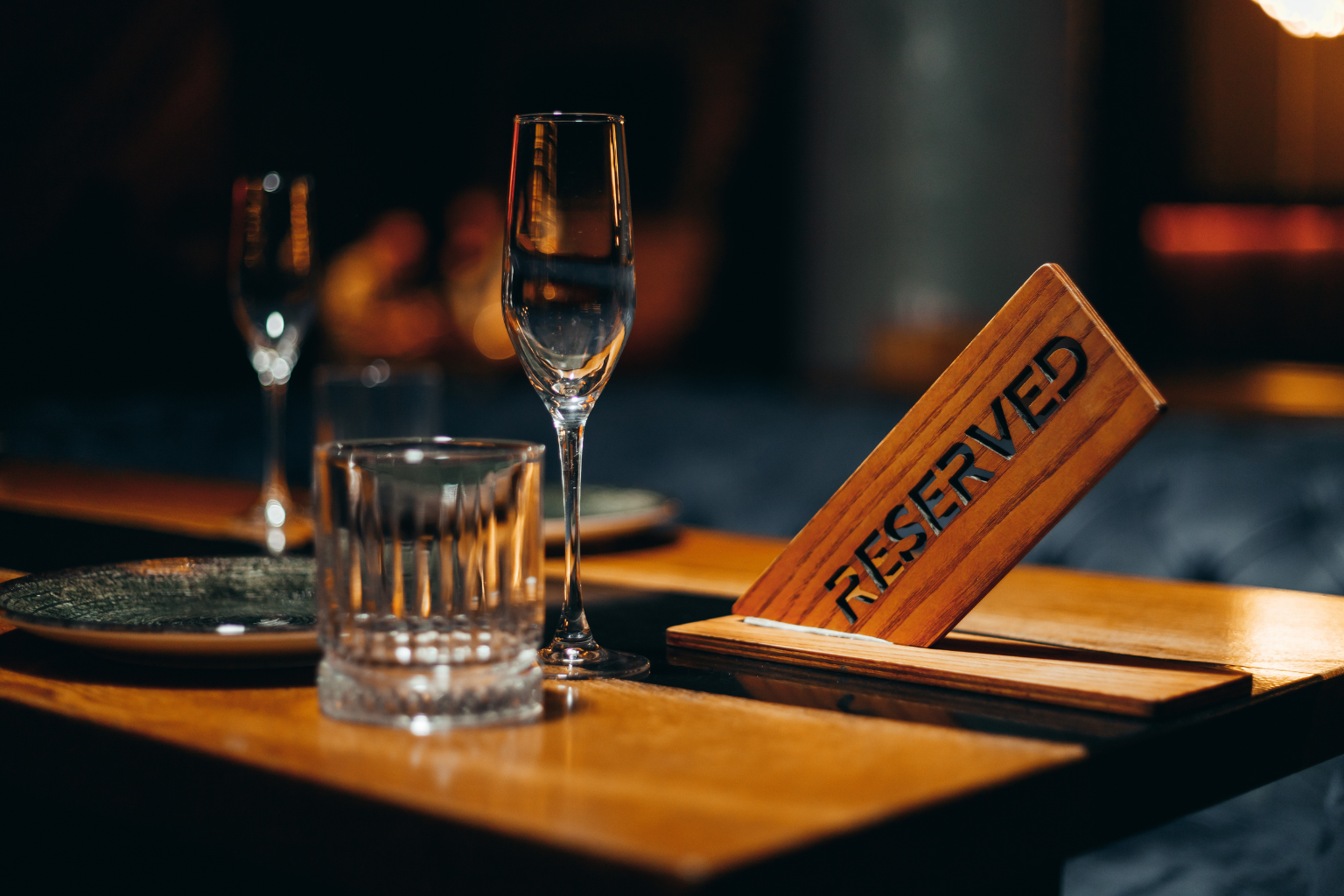New Jersey’s Hot Restaurant Reservations Are Being Resold for Hundreds — Lawmakers Push Back

New Jersey’s Hot Restaurant Reservations Are Being Resold for Hundreds—Lawmakers Push Back
Getting a table at some of New Jersey’s hottest restaurants has become as competitive as scoring tickets to a sold-out concert. In Montclair, Jersey City, and other dining hot spots, reservations disappear within minutes of opening. But for those willing to pay extra, a growing marketplace has emerged where access to these coveted tables comes at a steep price.
The rise of third-party platforms like Appointment Trader has changed the way food lovers chase reservations. Launched in 2021, Appointment Trader allows users to buy and sell bookings for restaurants, bars, and even hotels. On this platform, a dinner for two at Pasta Ramen, Montclair’s buzzy Japanese-Italian fusion restaurant, can cost anywhere from $145 to $220. A table at Mezcal, a new Mexican-inspired steakhouse in Old Bridge, has been listed for $125 to $195. The system resembles online ticket reselling sites, creating a new economy where tables are auctioned to the highest bidder.
How Reservation Reselling Works
The process is straightforward: diners who want a table place bids, and “concierges” — essentially sellers — accept them. These sellers can be anyone from college students to restaurant staff who secure bookings through platforms like OpenTable and Resy. Once sold, the restaurant itself receives no share of the transaction; the money flows directly between buyer and seller, with Appointment Trader collecting a service fee.
While the system gives diners a chance to skip the endless waitlists, it has sparked major backlash. Critics argue it creates unfair access, drives up costs, and leaves restaurants vulnerable to no-shows when tables are hoarded for profit instead of genuine dining plans.
New Jersey Lawmakers Step In
Concerned about the impact on both customers and businesses, New Jersey lawmakers have introduced a bill to ban third-party reservation resales. Senate Bill S4543, sponsored by Sens. Kristin Corrado (R-Passaic) and Joseph Lagana (D-Bergen), would ban Appointment Trader from the state.
Lawmakers think the timing is essential, especially with MetLife Stadium hosting the 2026 FIFA World Cup. The event is projected to draw over a million tourists to New Jersey, and officials worry that reservation resellers could charge thousands and leave restaurants vacant if purchasers don’t show up.
The proposed law would punish violations up to $1,000. Lawmakers aim to advance it before the world event, even though it has only been introduced in the state Senate.
Restaurant Owners Call the Practice “Frustrating”
Local restaurant owners, already facing the challenge of overwhelming demand, are also voicing frustration. At Mezcal, general manager Eddie Sunday described the trend as damaging to the restaurant’s business. He noted that some individuals were booking multiple tables on the same night through OpenTable, blocking seats that could have gone to real customers.
“For someone to grab a reservation only to flip it online, it feels like the system is being abused,” Sunday said, adding that the practice undermines the value of hospitality. Mezcal has since taken steps to prevent double-booking on its platform.
At Pasta Ramen, chef and owner Robbie Felice, a James Beard Award semi-finalist, shared similar concerns. The restaurant became so popular after opening that nearly 3,000 reservations were snapped up in a single day. While Felice admitted it’s flattering to see demand so high that tables are resold, he said it doesn’t feel right for diners to pay inflated fees just to experience his restaurant.
Appointment Trader Defends Its Model
Jonas Frey, founder of Appointment Trader, has defended the platform against accusations of being exploitative. He compared it to ride-sharing services, saying it simply connects those with a reservation to those who need one. According to Frey, many sellers are just offloading tables they can no longer use, and the company has already imposed restrictions to prevent abuse, such as limiting the number of reservations new users can post.
Despite these measures, critics believe the business model unfairly favors wealthy diners and undermines restaurants. New Jersey lawmakers remain firm that regulation is needed to protect both businesses and customers.
What It Means for New Jersey Diners
For now, the resale market continues to thrive, creating a two-tiered dining system — one for those who can patiently wait for reservations to open, and another for those willing to pay a premium to jump the line. With the possibility of millions of new visitors during the World Cup, the debate over reservation reselling is expected to intensify in the coming months.
If the bill becomes law, New Jersey could join states like New York and Illinois, which have already cracked down on similar practices. Until then, the competition for a seat at some of the Garden State’s most talked-about restaurants shows no sign of slowing down.
Sources:
- NJ Advance Media
- New Jersey Senate Records
- Restaurant Industry Statements




